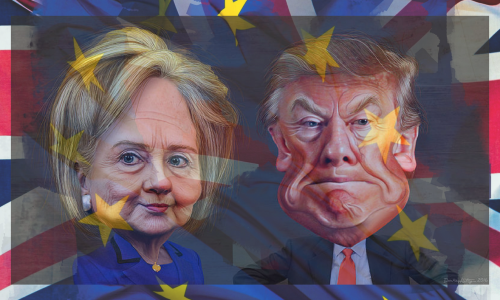Contact Us
Fill in the form below or you can also visit our contact us page.

As the methods of communication, knowledge storage and retrieval have advanced with modern ICT, the differences in cultures and the role culture plays in interpretation of our environment is becoming more and more apparent. Two people from different cultures can see an event, or read the same written passage, and have very different interpretations of the meaning. Normally, most of us interpret the world through our learned culture which will have a group view of events on a spectrum of “good’ to “bad”.
Accessibly through the internet and the WWW has caused major international software developers to rush for software “localization” to deal with the different cultural perceptions of knowledge. One of the catalysts of this localization phenomena is that we have seen most major literate societies have their language systems adapted to ICT technology making the WWW access nearly universal. An example of this phenomena is reported in a 2007 BBC article titled “YouTube Makes International Move”. In this article, One of the YouTube founders, Steve Chen, was very proud of the fact that YouTube was “localizing”. In France for example, for YouTube there are only French items presented in French language that have been selected by French people; thus forming an exclusive French YouTube in-group.
I will give my explanation of this insular attitude and how the new social media and the online generation are using ICT in a series of blogs.
Extelligence is a term that was coined by Ian Stewart and Jack Cohen in their 1997 book titled Figments of Reality. Stewart and Cohen define extelligence as:
“the cultural capital that is available to us in the form of external media
(e.g. tribal legends, folklore, nursery rhymes, books, videotapes, CD-ROMs, etc.)”
In their book, Stewart and Cohen contrast extelligence with intelligence. They define “intelligence” as the knowledge and cognitive processes within the brain. Further, they regard the ‘complicity’ (partners in crime) of extelligence and intelligence as fundamental to the development of consciousness in both evolutionary terms for the species and for the individual. ‘Complicity’, as used by Stewart and Cohen, “ is a composite of complexity and simplicity and is used by individuals to express the close and interdependent relationship between knowledge-inside-one’s-head and knowledge-outside-one’s-head that one can readily access.” I believe that the internet, the WWW and its stored information now makes a universal reservoir of extelligence or supratelligence which I wish to define as an online reservoir of multicultural extelligence.
An interesting idea is the meme which is defined as “an idea, behavior, or style that spreads from person to person within a culture. A meme acts as a unit for carrying cultural ideas, symbols, or practices that can be transmitted from one mind to another through writing, speech, gestures, rituals, or other imitable phenomena with a mimicked theme. Supporters of the concept regard memes as cultural analogues to genes in that they self-replicate, mutate, and respond to selective pressures.”
An individual’s intelligence about his environment are learned by an individual in a culture by way of family, friends, peer groups, formal education, club, associations, religious groupings, etc. A member of any culture will use both intelligence and extelligence of his cultural environment that fits into his belief system as “truth”. These newly formed beliefs may or may not have factual backing to prove that something is true.
This intelligence saves us time by us behaving as defined for us by our own beliefs. This behavior is normally without major reasoning and near automatic. By the word “belief”, the individual bases his way of thinking on faith in his beliefs rather than on truth and trying to resolve the case using reasoning with empirical facts. There is evidence that suggest that once we form a belief or point of view that we do not easily change our minds. There is an old Emory University study that provides us with the following:
“The investigators used functional neuroimaging (fMRI) to study a sample of committed Democrats and Republicans during the three months prior to the U.S. Presidential election of 2004. The Democrats and Republicans were given a reasoning task in which they had to evaluate threatening information about their own candidate. During the task, the subjects underwent fMRI to see what parts of their brain were active. What the researchers found was striking.
‘We did not see any increased activation of the parts of the brain normally engaged during reasoning (my italics),’ says Drew Westen, director of clinical psychology at Emory who led the study. ‘What we saw instead was a network of emotion circuits lighting up, including circuits hypothesized to be involved in regulating emotion, and circuits known to be involved in resolving conflicts.’ …”
The researches concluded: “The study has potentially wide implications, from politics to business, and demonstrates that emotional bias can play a strong role in decision-making, Westen says. “Everyone from executives and judges to scientists and politicians may reason to emotionally biased judgments when they have a vested interest in how to interpret ‘the facts,’” We see examples of this emotional based judgment in BREXIT and the latest US presidential election.
There is agreement among the members of a culture to what are their values and norms which can change very radically from one generation to another. An example would be what is acceptable language and material in today’s mass media. We find many words used and things depicted that would have never been allowed in mass media of the 1950s and 1960s.
In my next blog of this series, I will continue the discussion and go into the operations of memes and explore Virtual Tribalism.
Lee Clubb is Head of BTEC Centre at ITS Education Asia which runs one of the world’s first fully online live classroom BTEC courses to create a completely virtual blended learning environment.